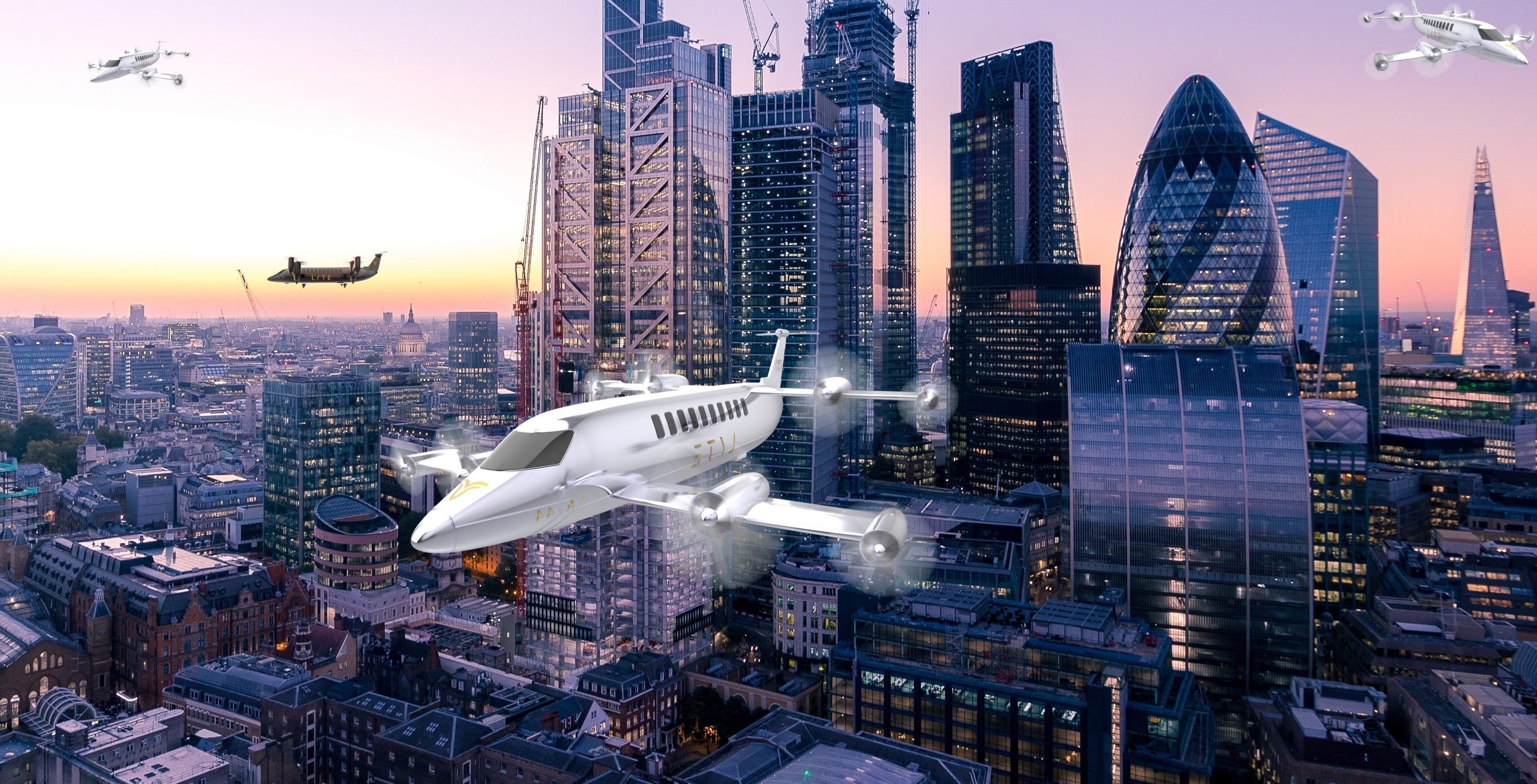Stay Up to Date
Submit your email address to receive the latest industry and Aerospace America news.
Lyte Aviation offers more details on business plan for hybrid vertical takeoff and landing aircraft
A U.K.-based aviation startup plans to seek a new round of funding from investors by the end of this year to build a full-size prototype of its proposed 40-passenger tiltwing aircraft and cargo version.
Lyte Aviation is currently in talks with Seattle-area organizations about establishing a commuter service there with the planned hybrid aircraft, founder and CEO Freshta Farzam told me in an interview.
This service would amount to an alternative to what today can be a 90-minute car and boat commute between Bainbridge Island, a wealthy enclave across Puget Sound from Seattle, and Redmond, where Microsoft’s headquarters are located. Farzam believes the airborne alternative could cut that commute time to 15 minutes.
“Ideally, we would love to operate in Seattle first. We are also in talks with others in other regions, but I cannot disclose those organizations,” Farzam said, clarifying that she means Lyte would produce and sell the aircraft that would be flown by others.
Interest in vertical takeoff and landing aircraft is nothing new in the Seattle area, which is also home to manufacturing by Boeing, whose subsidiary Wisk is one of the companies developing electric VTOL air taxis, typically to carry four to six passengers. Washington state’s Department of Transportation has studied potential uses for electric aircraft for years, having published a 228-page feasibility study that focused on eVTOLs in 2020.
Lyte Aviation announced plans for its SkyBus passenger aircraft and SkyTruck cargo version in April and has slowly released more details about its plans.
“We had a private investor for the first round so far in the last three years, but now we’re in talks to finalize” the next round, Farzam said.
Three years ago, Farzam, a native of Hamburg, Germany, was an investment adviser connecting investors with startup companies in solar energy and other green business areas. She saw a growing number of startup companies developing eVTOLs. She took inspiration from such companies as Joby Aviation, Archer and Germany-based Volocopter, startups whose aircraft will carry only a few passengers at a time.
“I thought, ‘Why not go big and attempt something truly disruptive?’” Farzam said.
The eVTOL companies have “created a new market,” she said, adding, “I want to surf on that wave and see how much more we can do.”
The SkyBus would carry two pilots, two crew and 40 passengers, while the SkyTruck would carry 4.5 metric tons of cargo.
Both would have a top speed of 300 kph and a range of 1,000 kilometers. The aircraft would be hybrid in the sense that each would be propelled by four conventional turboprop engines on tiltwings, plus four fuel-cell-powered electric motors that would turn propellers on the wingtips. The turboprop engines would be capable of burning either fossil fuel or sustainable aviation fuel made from biomass. The tiltwings would shift the position of the turboprops and wingtip propellers to provide vertical lift during takeoff and landing, and horizontal thrust during flight in cruise mode.
Farzam turned to fuel cells because lithium-ion batteries for such large designs would be too heavy, she said.
The SkyBus and SkyTruck would be quieter than a helicopter and five times more fuel efficient, according to the company.
The company’s white paper was a collaboration with the Advanced Air Mobility Institute, a Boston nonprofit that advocates for the industry; The Acceleration Agency, a Texas company that designs digital software and websites; and Alcifo, a Pennsylvania company that analyzes transportation data.
Farzam is also studying use cases for island transportation in areas like the Philippines and rural areas lacking roads or rail infrastructure.
“Anywhere in the world where we can avoid deforestation because we don’t have to lay the tracks or the roads — that is something I’m looking forward to,” she said.
Get the latest news about advanced air mobility delivered to your inbox every two weeks.
About paul brinkmann
Paul covers advanced air mobility, space launches and more for our website and the quarterly magazine. Paul joined us in 2022 and is based near Kennedy Space Center in Florida. He previously covered aerospace for United Press International and the Orlando Sentinel.
Related Posts
Stay Up to Date
Submit your email address to receive the latest industry and Aerospace America news.




